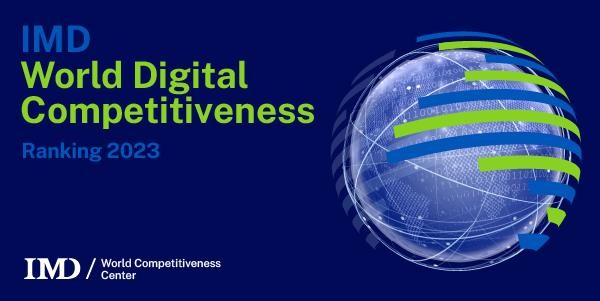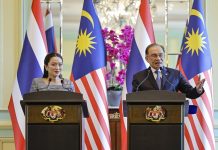The findings of this year’s IMD World Digital Competitiveness Ranking (WDCR), announced today, provide a glimpse at how different countries are approaching digital transformation in the age of artificial intelligence (AI). In other words, what it takes for nations to be truly digital – an increasingly important trait at a time when the emergence of this technology is already in the process of transforming society.
The top economies in this year’s ranking are those that could be considered “digital nations”, i.e. countries that facilitate the full adoption of digital technologies – including AI – by governments, companies, and individuals.
“While we measure no specific AI indicators, the technology sits silently at the core of several of the subfactors that we quantify: talent, regulatory and technological frameworks, and adaptive attitudes and business agility. On a data level, the quality of digital regulation, the funding available for technology development, and the degree of company agility are all data points that are enmeshed with AI,” explained Professor Arturo Bris, director of IMD’s World Competitiveness Center, which has been producing the WDCR since 2017.
AI technology and national security concerns are at the core of another remarkable trend observed in the ranking: an increasing focus on cybersecurity. Of the 4,000 senior executives around the world who responded to the WDCR survey, only 5% said they hadn’t implemented any new cybersecurity measures in the past year.
“Cybersecurity becomes a clear example of the need to assess AI’s trade-offs and to take a very deliberate approach towards using it optimally. Countries cannot do this in isolation, but need to lean on regional if not global institutions to do so,” said Bris.
US back on top
After having fallen to second place for the first time since the inception of the WDCR in 2017, the United States moved back to the top position with robust results across all three factors: knowledge, technology, and future readiness.
The consistency is the same as that of the Netherlands, which advanced four positions and ranks second, followed closely by Singapore, which ranked first in the technology factor.
Overall leader of the 2022 edition of the ranking, Denmark dropped to fourth place mainly due to a decline in future readiness and technology factors. Switzerland, the top-ranked economy in the knowledge factor, maintained its position and rounded out the top 5.
The 2023 WDCR studied 64 economies – including Kuwait for the first time – by looking into three main factors: knowledge, technology, and future readiness. These are broken down into nine sub-factors, comprising a total of 54 criteria that are quantified by means of both hard data and survey responses from executives.
This year, the WCC has also published the IMD World Competitiveness Ranking, the IMD World Talent Ranking, the IMD Smart City Index, and the Hinrich-IMD Sustainable Trade Index.















